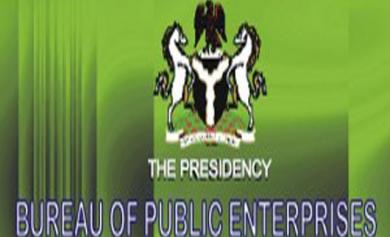
The gross proceeds from the direct sale of public enterprises between 1999 to date is N249, 497,188,000, the Bureau of Public Enterprises(BPE) has said.
It explained that of the said sum, N103, 844,517,000 was used to settle staff salaries and terminal benefits of the workers of the privatised firms, while other transaction expenses gulped N23, 988,232, 000.
Also, the net proceeds, during the period under review, were N121, 664,439, 000, when dividend revenue is added to the net proceeds, the amount remitted to the Federation Account was N146, 182,300,000.
According to a statement issued and signed by the BPE spokesman, Chukwuma Nwokoh, this data was among the myriad documents submitted by the bureau during the public hearing by the Senate into the activities of BPE from 1999 to date.
Giving explanation on the privatisation process and proceeds, Nwokoh, stated that the activities of the BPE were governed by the constitution of the Federal Republic of Nigeria and its enabling legislation, the Privatisation and Commercialisation Act of 1999.
“In undertaking its mandate, the BPE has been faithful to the tenets of these laws.It must be noted that upon acceptance of the offer price by the National Council on Privatisation (NCP), the core investor is expected to make graduated payment of the agreed sum while negotiations continue to finalise the Share Purchase Agreement.
“It is also apt to point out that payment of the offer price by the winning bidder is graduated and as a result, until full payment is made, the initial payments are lodged with commercial banks for transfer to the privatisation proceeds account with the Central Bank of Nigeria (CBN) on final payment by the winning bidder.”
In this regard, he said, the federal government, which was aware of its liabilities to the workers and other creditors, approved the deductions of the agreed sum before the net proceed was paid into the proceeds account.
He added that surplus revenue after closure of each transaction and net-off of transaction expenses was paid into the Privatisation Proceeds Account.
Nwokoh pointed out that the bureau’s expenditure was broken into two broad categories: Transaction expenses and administrative expenses.
He stated that transaction expenses were the direct expenses of carrying out a sale which included advisers’ fees, settlement of labour entitlements, among others, while the administrative expenses included staff salaries and other overheads, and that the administrative expenses were offset through budgetary provisions.
“It would have been completely impossible to undertake the privatisation programme of the federal government if no arrangements had been made to pay off the workers’ entitlements and other transaction expenses.
“Recall that in the past four years, the Bureau has been picketed and its staff locked out by workers of privatised enterprises who are demanding the payment of their entitlements.
“For the avoidance of doubt, we would like to reconfirm to the Nigerian people that all privatisation proceeds from inception are fully accounted for and the records are open for all”, he said.

